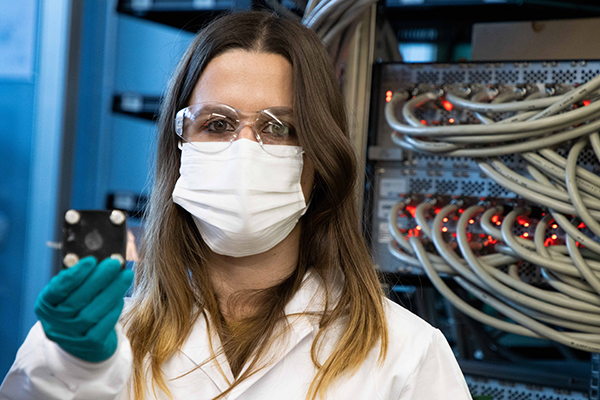
These low-cost, high-availability batteries with a low environmental impact will be developed as part of the ZABCAT project.
Lithium-ion batteries are currently one of the most widespread energy storage options. Today they are the most commonly used batteries for portable electric devices, although they have a wide range of applications. However, this technology has some sustainability and safety problems, in addition to technical limitations, and rechargeable zinc-air batteries are therefore a promising alternative to solve many of these disadvantages. They consist of high-energy-density systems able to accumulate more energy than the lithium-ion batteries existing today. They also have a low environmental impact as they contain zinc, one of the most abundant elements in the Earth’s crust, and oxygen, always present in the atmosphere. Zinc-air batteries therefore use safe, low-cost, widely available materials.
The Materials for Energy Unit of CIDETEC Energy Storage has focused on developing low-cost zinc-air batteries for use with energy storage devices for the last ten years, consolidating renewably sourced energies. CIDETEC Energy Storage’s work has involved developing in-house technology for each one of the cell components and it now has a cell prototype of 50 Wh/kg and over 4000 hours of use.
However, for total efficiency as a storage system zinc-air technology still needs to overcome some major obstacles that are hindering its development. Cathode degradation limits both the reversibility and duration of these batteries.
The new ZABCAT project will therefore focus on protecting the metal catalysts to resolve the low durability of the air cathode in these batteries, extending their working life and improving their performance under real conditions.
During the first stage of the project, the CiQUS Centre of the University of Santiago de Compostela (USC) will conduct research to overcome the main technical hurdle of cathode degradation. CIDETEC Energy Storage will then make the pre-industrial scale up, integrating these materials in rechargeable zinc-air batteries to suitably assess prototype performance with the aim of speeding up their market launch. These new developments could triple the cycle duration of the cells as compared to currently available systems, doubling the energy production and reducing their cost by 30%.
The ZABCAT project is financed with Proof of Concept funding, as part of the European Research Council (ERC)’s prestigious programme for highlighting and enhancing the marketing of some of the advancements developed in its projects. ZABCAT will receive 150,000€ of funding for this purpose and the scheme will last 18 months.